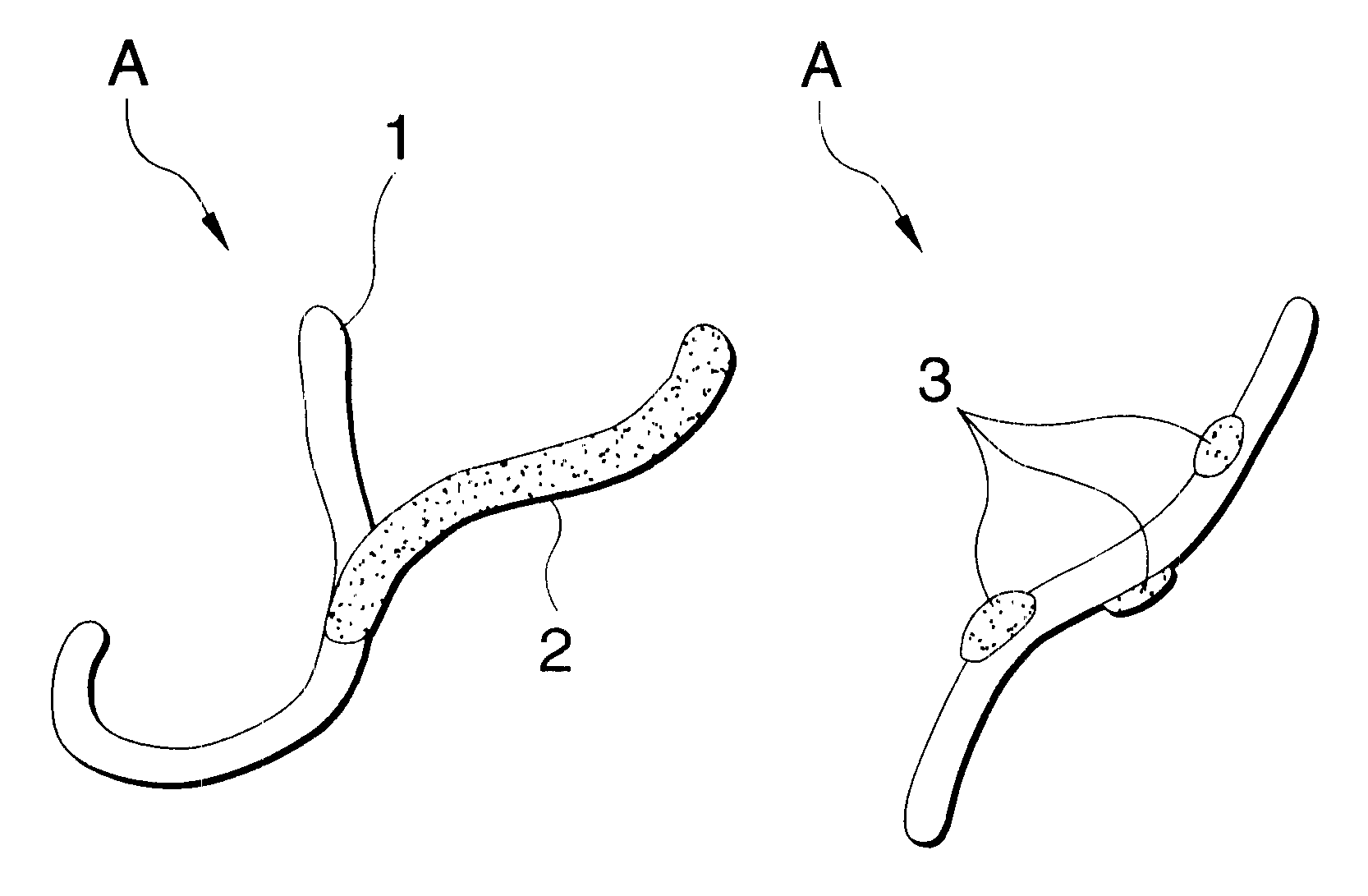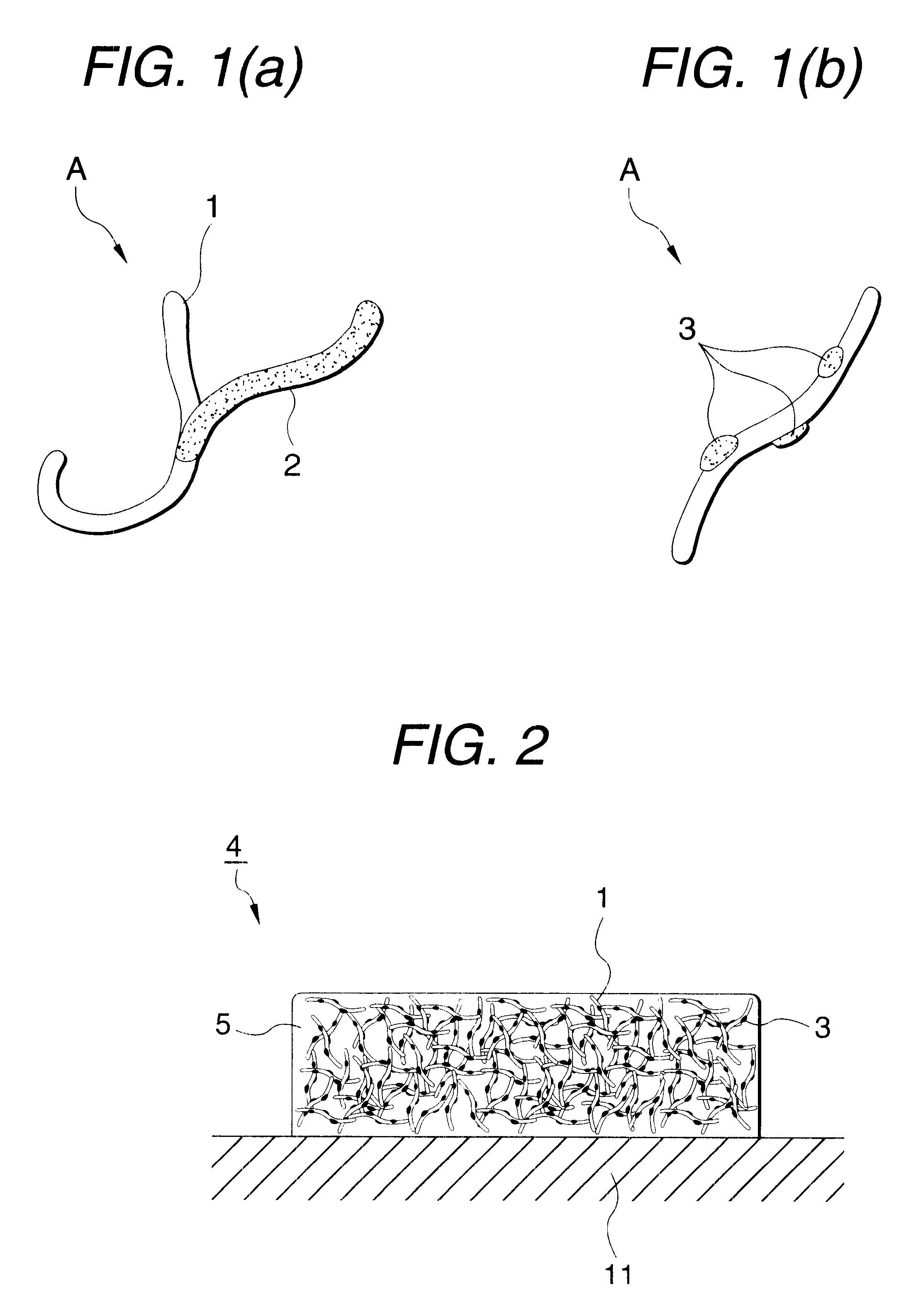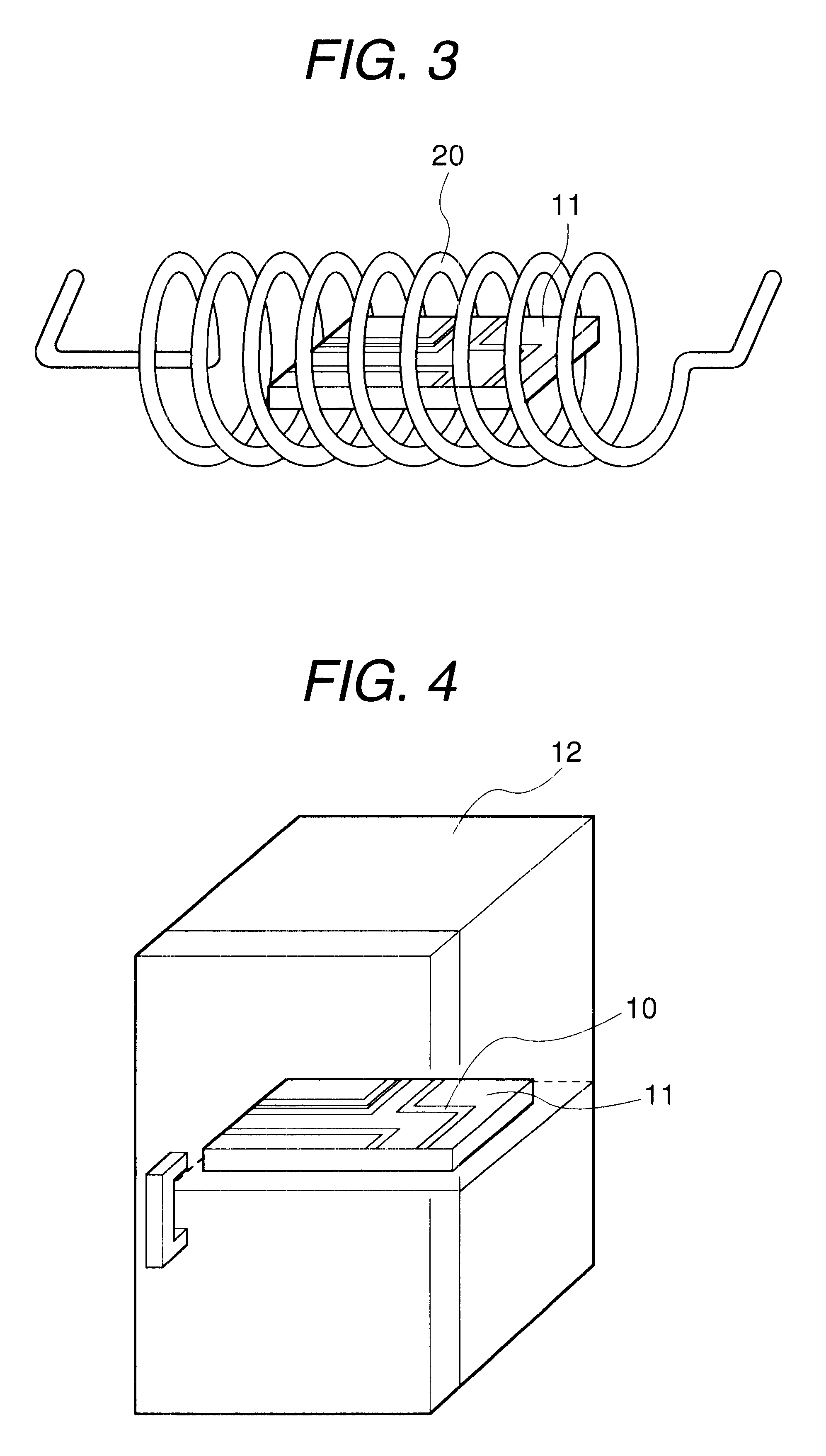Electrically conductive paste and method of forming circuit
a technology of forming circuit and conductive paste, which is applied in the direction of resistive material coating, non-conductive material with dispersed conductive material, metallic pattern materials, etc., can solve the problems of increasing manufacturing costs, difficult to transmit heat from the heating element, and unavoidable deformation of the insulating substrate 11
- Summary
- Abstract
- Description
- Claims
- Application Information
AI Technical Summary
Benefits of technology
Problems solved by technology
Method used
Image
Examples
example 1
By using a ball mill, 1 mol of copper chloride, 0.1 mol of ferrous chloride, and 1 mol of carbon powder were mixed uniformly, and this mixture was placed in a ceramic boat, was placed in an electric furnace, and was caused to react at 400.degree. C. for 1 hour in an atmosphere of nitrogen gas while introducing steam into it. As a result, it was possible to obtain complexes in which iron particles having diameters ranging from 5 to 10 .mu.m were attached to the surfaces of copper whiskers having lengths ranging from 50 to 80 .mu.m, as shown in FIG. 1B.
Next, these complexes were compounded with a phenolic resin at a ratio of 600 parts by weight of the complexes with respect to 100 parts by weight of the phenolic resin, and were mixed sufficiently, thereby fabricating the conductive paste.
Then, when after a circuit pattern was coated on the insulating substrate made of PET by using the conductive paste obtained, this insulating substrate was disposed in a high-frequency induction coil ...
PUM
| Property | Measurement | Unit |
|---|---|---|
| frequency | aaaaa | aaaaa |
| lengths | aaaaa | aaaaa |
| diameters | aaaaa | aaaaa |
Abstract
Description
Claims
Application Information
 Login to View More
Login to View More - R&D
- Intellectual Property
- Life Sciences
- Materials
- Tech Scout
- Unparalleled Data Quality
- Higher Quality Content
- 60% Fewer Hallucinations
Browse by: Latest US Patents, China's latest patents, Technical Efficacy Thesaurus, Application Domain, Technology Topic, Popular Technical Reports.
© 2025 PatSnap. All rights reserved.Legal|Privacy policy|Modern Slavery Act Transparency Statement|Sitemap|About US| Contact US: help@patsnap.com



